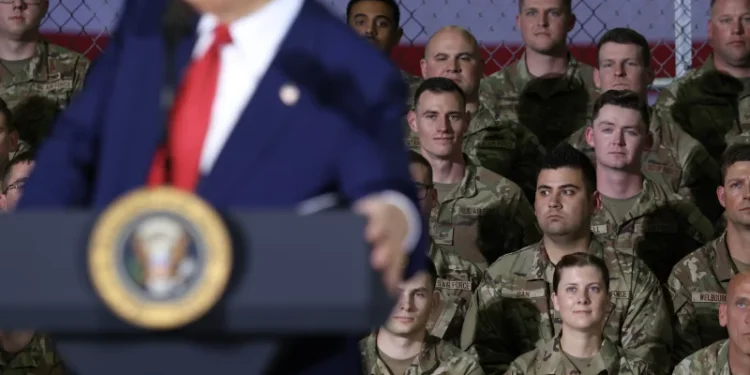The Department of Homeland Security (DHS) has formally requested support from the Pentagon to deploy 20,000 National Guard troops to assist in the deportation of migrants without legal status in the U.S., NPR has learned from a senior official familiar with the plan.
The request, currently under legal review by military attorneys, would mark the first time Guard troops have been asked at the national level to directly support deportation efforts. The initiative was first reported by The New York Times.
Governors to Decide on Guard Participation
The plan hinges on state governors voluntarily contributing troops from their National Guard forces. So far, no timeline has been given for when the request will be sent to governors, and it’s unclear which states may agree to participate.
Role of the Troops Still Unclear
At this point, details remain vague about what specific roles the Guard members would take on — whether limited to logistical and security support such as transportation or whether they would be authorized to detain or arrest undocumented migrants.
In February, Texas Governor Greg Abbott already empowered Texas Guard troops to conduct immigration arrests under state authority. However, this new DHS proposal would bring Guard troops from across the country into the federal deportation process for the first time.
Trump’s Push to Expand Deportation Forces
The move aligns with President Trump’s recent directive to increase DHS deportation personnel by 20,000 officers, with Guard troops seen as the fastest way to scale operations. However, there’s no indication that Trump plans to federalize the National Guard, which would strip governors of control — a step last taken in 1992 during the Los Angeles riots.
Border Troop Surge
The Trump administration has significantly expanded military presence at the U.S.-Mexico border, with more than 10,000 troops now deployed — up from about 2,500 during the Biden administration. The Pentagon has also claimed more control over a 60-foot-wide strip of land known as the Roosevelt Reservation, where troops are authorized to temporarily detain individuals until law enforcement can take over.
This development comes as the Supreme Court hears arguments over birthright citizenship and amid growing controversy surrounding the federal government’s approach to immigration enforcement.









